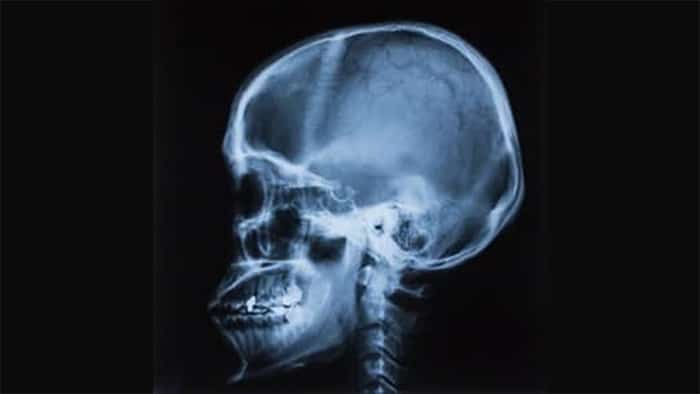
Although your brain is well-protected behind the thick bone of the skull, it can still be injured. Brain injuries can be very frustrating, as minor injuries may be hard to diagnose, while major injuries are life-changing and debilitating. Symptoms range from the subtle to the severe and clearly obvious.
START YOUR FREE CONSULTATION
NO FEES UNLESS WE WIN!
Call (702) 382-0000 for a free consultation
What are Causes of Brain Injury?
Brain injuries occur as the result of trauma to the brain. The bone of the skull provides external protection, but the brain itself can move within the skull. A whiplash injury, in which the head is abruptly moved back and forth, causes the brain to slam against the inside of the skull. In addition to the bruising and swelling that results, the movement shears structural components loose from their attachments, which affects how the brain functions.

The Centers for Disease Control and Prevention says falls are the top cause of traumatic brain injury (TBI), particularly in children under the age of 14 and adults over the age of 65. Accidental blunt trauma (being hit by an object such as a bat or ball) is the second leading cause, followed by motor vehicle crashes and assaults.
Severity and Symptom
TBIs fall into three categories. A minor TBI, sometimes called a concussion, causes a brief loss of consciousness or confusion and disorientation. Repeated minor TBIs can cause permanent brain damage. Moderate TBIs typically result in a short period of unconsciousness. Severe TBIs can cause prolonged unconsciousness or coma. Headache, ringing in the ears, nausea, vomiting and drowsiness are all symptoms of a TBI. Severe TBIs can cause seizures, combative or aggressive behavior, loss of coordination or numbness in various parts of the body.
TBI Symptoms
Although you should not attempt to diagnose a brain injury yourself, there are some symptoms to look for. These symptoms may be physical, sensory, emotional or cognitive.
Headache is probably the most common symptom following a TBI. The headache results from the physical trauma of the blow or fall, which causes surface trauma as well as bruising and swelling of the brain. A severe, throbbing headache or gradually worsening headaches can be a sign that the pressure inside the brain is increasing. This is a danger sign that requires immediate medical attention.
- Nausea and/or vomiting are also fairly common TBI symptoms.
- When one pupil is larger or smaller than the other, or the pupils do not shrink when you shine a light in them, it indicates a greater degree of brain injury than if both pupils are equal and respond to light.
- Other physical symptoms might include drowsiness, dizziness or coordination problems.
Oh, It’s Just a Bump on the Head
Most TBIs in the US are minor, according to the CDC. Because they are minor, the symptoms may be quite subtle, and health care professionals as well as family members may dismiss the effects. A minor TBI does not show up on most imaging studies such as MRIs and CT scans. In the absence of physical evidence, it can be tempting to ignore or minimize symptoms. Symptoms of TBI can cover a wide range, because the brain affects all body functions. For example, a TBI can cause people to report odd smells or tastes, or lose the ability to distinguish between certain smells or flavors.
Information Processing
Information processing may be one of the hardest TBI symptoms to pin down. Information processing has to do with the brain’s ability to recognize shapes or patterns, make deductions about what those mean and decide what to do. If the brain’s information processing abilities are impaired, the patient may make comments about finding it hard to think or concentrate. His or her reaction times may be slightly slower and decisions impaired. Tasks that were once second nature may become difficult. In driving, for example, the driver must process multiple data about the car’s speed, the speed of other cars, distances and colors (such as of traffic lights). In addition, the brain must command the muscles to turn the wheel, speed up or step on the brake. If the radio is on or other people in the car are talking, the brain must also process those sounds. After a TBI, the brain’s processing speed and effectiveness may change, making it more difficult to drive and increasing the risk of an accident.
Children and TBI
Children may develop symptoms similar to those of adults after a TBI. Younger children, however, may not be able to communicate their symptoms as well as adults. They may express their symptoms in behavior, such as changes in eating or sleeping habits. A child with a TBI may become easily irritated or frustrated, cry easily, find it hard to pay attention or lose interest in favorite toys or activities.
Dealing with TBI

You should never minimize the effect of a blow or trauma to the head. Even a minor TBI in which the individual does not lose consciousness can result in ongoing problems with speech, vision, coordination and thinking ability. In adults, these symptoms can affect their ability to work and function. In children, TBIs may cause problems with learning or behavior. People with brain injuries may realize something is wrong but not be able to explain it clearly, partly because the brain is affected and partly because the symptoms may be subtle. If you yourself have a TBI, you may not even recognize that your thinking is impaired.
Medical Care
Anyone who has had even a minor TBI should receive prompt medical attention. As the TBI heals, symptoms should gradually decrease. If symptoms persist beyond a week or two, however, the patient should be reassessed by a medical professional, preferably one who has experience with TBI, such as a neurologist or speech-language pathologist. TBIs can be treated, but treatment should begin as early as possible, or otherwise, the brain begins to compensate for the injury, which can make things worse. Patients who develop severe headaches, seizures, loss of consciousness, or major behavior changes should receive immediate medical attention.
If one of your loved ones have been injured and are suffering from a traumatic brain injury in Las Vegas, Nevada Area, please contact our offices today. Call (702) 382-0000 for a Free Consultation
Call (702) 382-0000 for a free consultation
Adam S. Kutner is a top 100 trial lawyer with 33 years’ experience and expertise that will benefit you
Call us at (702) 382-0000 anytime to schedule a free consultation. We will work to get you the maximum settlement as quickly as possible so you can move forward on your healing journey.
START YOUR FREE CONSULTATION
NO FEES UNLESS WE WIN!
Home visits are available
Call now for details
SE HABLA ESPAÑOL

Adam S. Kutner
PERSONAL INJURY LAWYER
With more than 33 years of experience fighting for victims of personal injury in the Las Vegas Valley, attorney Adam S. Kutner knows his way around the Nevada court system and how to get clients their settlement promptly and trouble-free.














